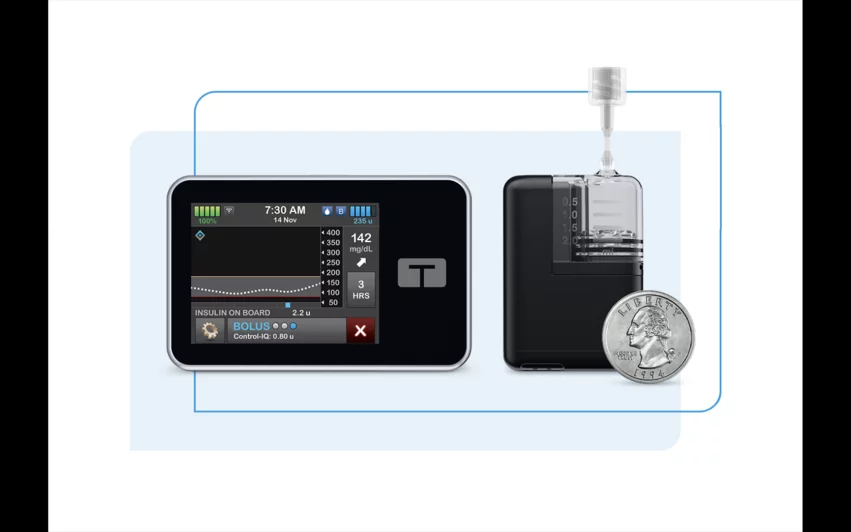FDA announces Class I recall after insulin pump software causes 224 injuries
Tandem Diabetes Care is recalling a recent update of the mobile app for its t:slim X2 insulin pump due to repeated software issues that may cause the pump to shut down unexpectedly.
The U.S. Food and Drug Administration (FDA) has categorized this as a Class I recall, which means using the software without following the company’s recommendations “may cause serious injuries or death.”
The software glitch in question is causing version 2.7 of the t:connect iOS app to crash and then restart again.
“This cycle intermittently repeats, which leads to excessive Bluetooth communication that may result in pump battery drain and may lead to the pump shutting down sooner than typically expected,” according to the FDA advisory. “Pump shutdown will cause insulin delivery to suspend, which could lead to an under-delivery of insulin and may result in hyperglycemia or even diabetic ketoacidosis, which can be a life-threatening condition due to high blood sugars and lack of insulin.”
Version 2.7 of the t:connect app was released on Feb. 12, 2024. As of April 15, the FDA has received reports of a total of 224 patient injuries. A total of 85,863 devices are included in the recall.
A corrected version of the t:connect app has been available since March 18. Tandem Diabetes Care sent an Urgent Medical Device Correction highlighting the issue to all affected customers on March 26.
This recall is a correction, not a full product removal
Unlike many recalls, this is not a full product removal. Instead, it is recommended that users update their iOS app to version 2.71 or later. The t:slim X2 insulin pumps can then be used like normal, though the company did emphasize the importance of paying attention to “all system alerts and alarms.”
In addition, it is recommended that customers monitor the battery life of their insulin pumps closely and keep backup supplies on hand.
Additional details are available here.


